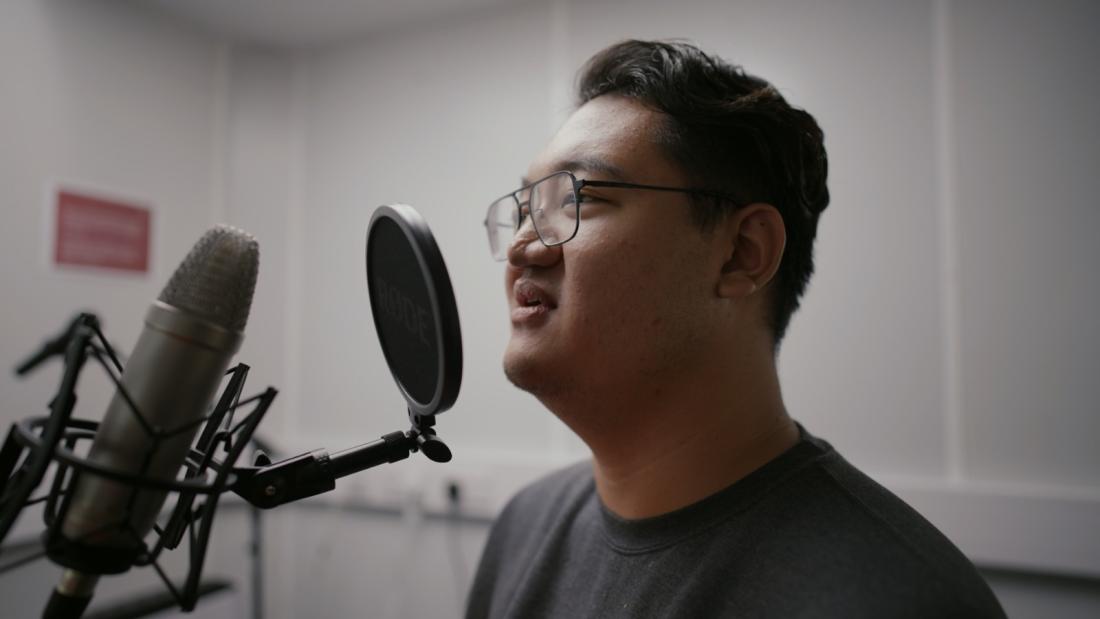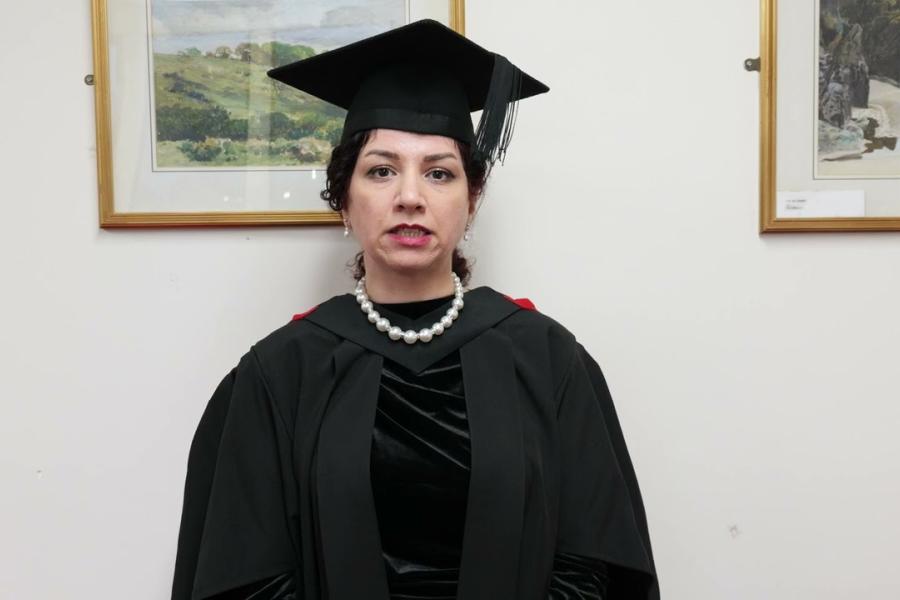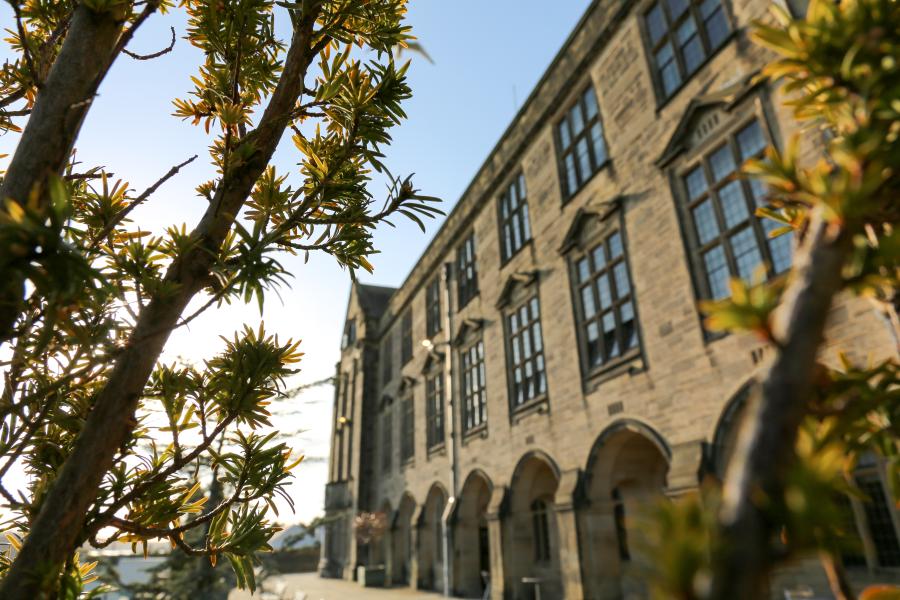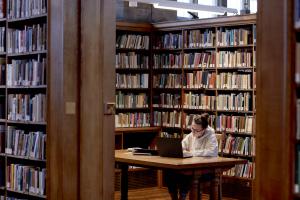Why Study Linguistics, English Language & Bilingualism?
We are an accessible, friendly Department whose staff are committed to high-quality teaching and strong academic (and personal) support throughout the duration of our students’ studies
Our staff are passionate about passing on their expertise and subject knowledge and our research informs our teaching provision, with our students benefitting from cutting-edge of academic enquiry and developments.
We have state-of-the-art research facilities, labs and equipment that includes recording and sound processing, eye tracking, ERP, language technology and high-performance computing machines and/or resources.
We offer personalized dissertation support and supervision on wide range of linguistics topics using applied, theoretical, experimental, corpus-based or ethnographic methodological frameworks.
A vibrant research environment is also manifest through various public events and workshops throughout the year.
Student Experience
Applied Linguistics at Bangor University: A Graduate's Experience
This is an interview with Elham Taheri, an Applied Linguistics student at Bangor. She is wearing a graduation gown and hat and speaking directly to camera.
My Experience at Bangor University
My name is Elham Taheri. First of all, I enjoyed being taught by very professional teachers. Of course, I have studied English language before, but this time it was more professional, and I loved that.
A Friendly and Supportive Learning Environment
It's a cosy place and a friendly one. And the course, because it has both theoretical parts and a practical part, really helped me. I learnt a lot, not only in classes but also in practical situations, using the theories that are used in my classes. And as I said, because of the professional teachers here, I learnt a lot.
Career Opportunities After Graduation
Right now, exactly after I finished my course here, I moved to London and fortunately found a job in a college in London. I didn't think I did that easily, but fortunately, because I was graduating from Bangor University, it was easy for me to find a job. I loved my job as a teacher.
"I love everything about Bangor and I’m planning to stay in Bangor for an extra term."
Career Opportunities in Linguistics, English Language & Bilingualism
Our courses offer a range of experiences and would appeal to anyone seeking to embark on career involving the development of the nature, use and application language or languages in modern society.
Our MA in Linguistics will give you a detailed understanding of how language works and the ability to conduct research at various levels of linguistic analysis. Students also gain key intellectual skills such as examining and evaluating theories and empirically based models and hypothesis which are also combined with a range of transferable skills - such as computer literacy, working with data, information retrieval, critical analysis and problem solving. Graduates are well-equipped to find career opportunities in communications, teaching, publishing, marketing and research. The transferable skills acquired through this programme are beneficial in a range of other careers, including advertising, journalism, consulting etc. After successful completion of the MA in Linguistics, you may also decide to pursue an academic career in Linguistics, by applying for a place on the PhD in Linguistics
Our MA in Applied Linguistics for TEFL will give you a detailed understanding of how to teach English as a foreign language for various professional purposes across the globe. In addition to gaining class-room experience you will also have the opportunity to develop strong research and analytical skills as well as the ability adopt/use different strategies for communication and presentation in English in a range of multilingual and international contexts. Although this is not a formal teaching qualification, it gives students who wish to go on to teach English to non-native speakers the theoretical and linguistics background they need as well as offering practical, classroom experience. Opportunities exist to teach in countries all over the world, e.g., in universities, colleges or private language schools. After successful completion of the MA in Applied Linguistics for TEFL, you may decide to pursue an academic career and apply for a PhD.
Our MSc in Language Technologies develops skills and knowledge that employers need in a number of areas related to the field of language technologies, especially areas such as natural language processing, machine translation, text-to-speech conversion. You will also find that you develop transferable skills that will allow you to progress to different career areas or to continue your studies at PhD level in language technologies or a related field.
Graduates from this course will appeal to employers in a wide variety of fields related to the broader field of linguistics (e.g., education, management, government, research, health) especially where an understanding of language and human-machine interaction are needed. Others may seek to pursue careers where an understanding of language-based problems is relevant (e.g., translation, software development, cryptography, language planning). To that end, a Masters in Language Technologies might go on to obtain professional qualifications or to further enhance their employability in their chosen field. After successful completion of the MSc in Language Technologies, you may also decide to pursue an academic career in Computer Science or Computational Linguistics, by applying for a place on the PhD in either Computer Science or Linguistics.
Our MA in Bilingualism will give you a detailed understanding of issues related to bilingualism and multilingualism and the ability to conduct research in these areas. Students also gain key intellectual skills such as examining and evaluating theories and empirically based models and hypothesis. When combined with a range of transferable skills such as computer literacy, working with data, information retrieval, critical analysis and problem solving. Graduates find career opportunities in communications, teaching, speech and language therapy, publishing, research, and the transferable skills acquired through this programme are beneficial in a range of other careers, including advertising, journalism, consulting etc. After successful completion of the MA in Bilingualism, you may also decide to pursue an academic career, by applying for a place on the PhD in Bilingualism.
Our MSc in Language Acquisition and Development will provide you with the requisite skills, understanding, and knowledge to work effectively and increase your employability in organisations working with bilingual populations and second language learners with and without language impairment, such as speech and language therapists and teachers. After successful completion of the MSc in Language Acquisition and Development you may also decide to pursue an academic career in Linguistics, by applying for a place on the PhD in Linguistics.
Our Research in Linguistics, English Language & Bilingualism
As a Department. our staff has an active and diverse research profile that is internationally recognised, in a range of fields including: 1st and 2nd language acquisition, language variation and change, language maintenance, atypical language development, corpus linguistics, language and communication, language technologies / natural language processing (NLP), contested languages, processing and acquisition of prosody and syntax, psycholinguistics, historical linguistics, grammaticalization, Cognitive Discourse Analysis (CODA), Critical Discourse Analysis (CDA), multimodal analysis, temporal language and the nature of figurative language, TESOL and SLA language teaching pedagogy and Welsh linguistics.
Our vibrant research environment is also supported through various events throughout the year, ranging from individual talks to informal seminars and workshops to large conferences. Many of these are open not just to academic staff, but also to students and to the general public.
You may also be interested in these related subject areas.
You may also be interested in these related subject areas.








